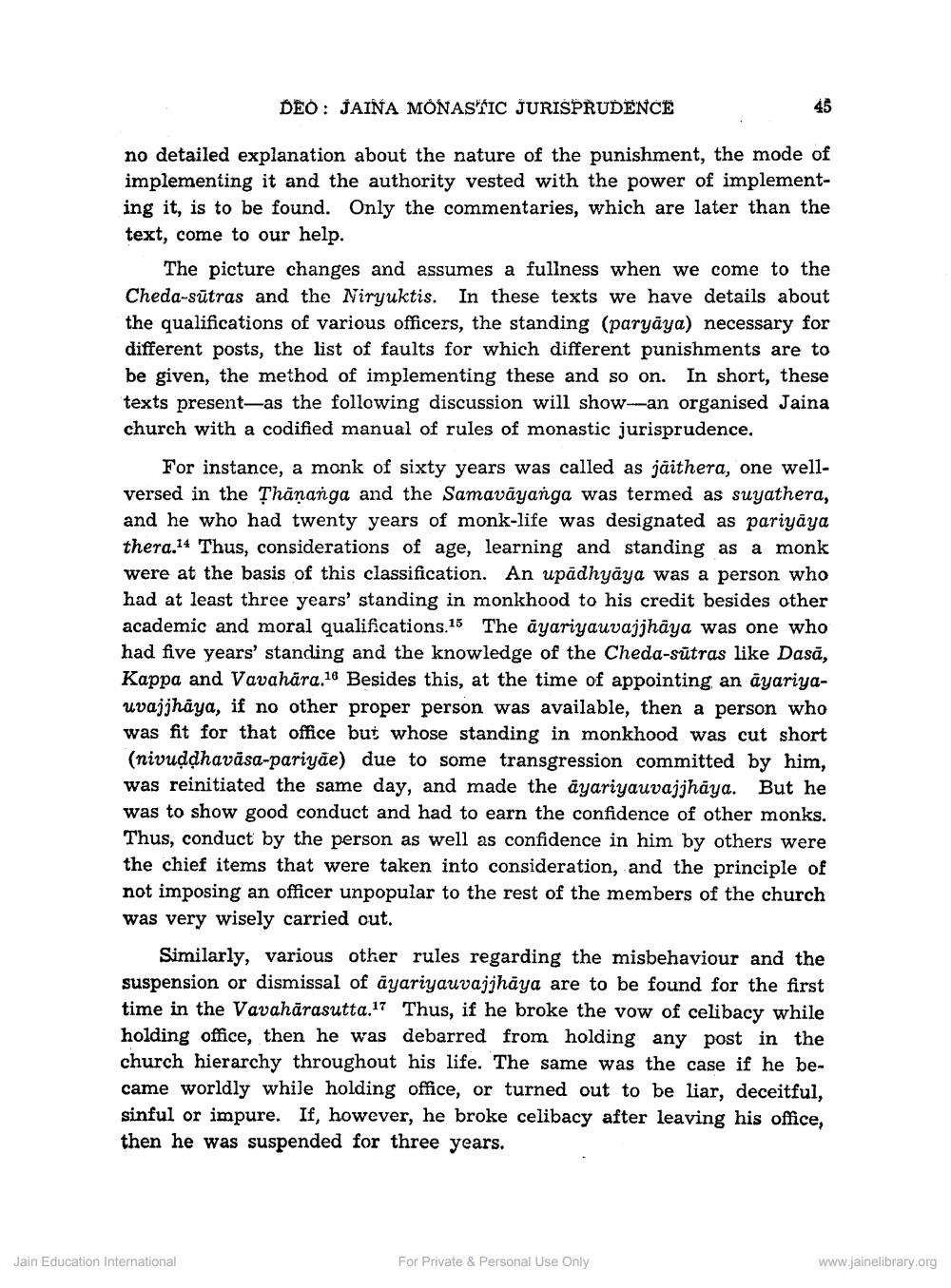________________
DEO: JAINA MONASTIC JURISPRUDENCE
no detailed explanation about the nature of the punishment, the mode of implementing it and the authority vested with the power of implementing it, is to be found. Only the commentaries, which are later than the text, come to our help.
The picture changes and assumes a fullness when we come to the Cheda-sutras and the Niryuktis. In these texts we have details about the qualifications of various officers, the standing (paryaya) necessary for different posts, the list of faults for which different punishments are to be given, the method of implementing these and so on. In short, these texts present-as the following discussion will show-an organised Jaina church with a codified manual of rules of monastic jurisprudence.
45
For instance, a monk of sixty years was called as jäithera, one wellversed in the Thaṇanga and the Samavayanga was termed as suyathera, and he who had twenty years of monk-life was designated as pariyāya thera.14 Thus, considerations of age, learning and standing as a monk were at the basis of this classification. An upadhyāya was a person who had at least three years' standing in monkhood to his credit besides other academic and moral qualifications.15 The āyariyauvajjhāya was one who had five years' standing and the knowledge of the Cheda-sutras like Dasă, Kappa and Vavahāra. Besides this, at the time of appointing an ayariyauvajjhāya, if no other proper person was available, then a person who was fit for that office but whose standing in monkhood was cut short (nivuddhavasa-pariyae) due to some transgression committed by him, was reinitiated the same day, and made the ayariyauvajjhaya. But he was to show good conduct and had to earn the confidence of other monks. Thus, conduct by the person as well as confidence in him by others were the chief items that were taken into consideration, and the principle of not imposing an officer unpopular to the rest of the members of the church was very wisely carried out.
16
Jain Education International
Similarly, various other rules regarding the misbehaviour and the suspension or dismissal of ayariyauvajjhaya are to be found for the first time in the Vavahärasutta." Thus, if he broke the vow of celibacy while holding office, then he was debarred from holding any post in the church hierarchy throughout his life. The same was the case if he became worldly while holding office, or turned out to be liar, deceitful, sinful or impure. If, however, he broke celibacy after leaving his office, then he was suspended for three years.
For Private & Personal Use Only
www.jainelibrary.org




